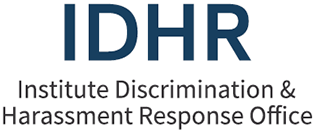Abuse & Harassment Prevention Court Orders
In Massachusetts, a victim of sexual assault, dating violence, domestic violence, or stalking may seek an abuse prevention order (commonly referred as a 209A or restraining order) or a harassment prevention order (commonly referred to as a 258E order). An abuse prevention order is a court order that legally restrains a family or household member from further harming or threatening to harm a victim.
A harassment prevention order may be requested against anyone who has been harassing, stalking, or sexually assaulting a victim no matter what the relationship with the person might be. For additional information, please see The Massachusetts Court System Website.
The MIT Police and/or Violence Prevention and Response (VPR) can provide information on obtaining a court-issued Harassment Prevention Order or Abuse Prevention Order, depending on the nature of the case, but cannot provide legal representation. A violation of a court-issued order can result in criminal charges and it is enforced anywhere in the United States. If you have a Harassment Prevention Order or Abuse Prevention Order, or similar order issued by any court, please provide a copy to MIT PD. Once issued, MIT will work with you to make accommodations and to enforce the order.
Protection orders issued by courts in other jurisdictions will be enforced in Massachusetts as long as the protection order is still in place in the issuing jurisdiction. Enforcement can include, but is not limited to, enforcement by MIT Police, City of Cambridge Police, and/or assistance from any other state or local police authority in the jurisdiction where the complainant lives or works. Complainants may request, as part of a protection order, that the respondent refrain from contacting, harassing, or abusing the complainant, stay away from the complainant’s home or workplace, or pay damages to the complainant for harm suffered as a direct result of the abuse of harassment. Abuse and harassment prevention orders also protect against contact through friends, relatives, neighbors or anyone else, or sending or posting messages on Facebook, Twitter or any other social media site, unless specifically allowed in the order. There is no filing fee charged for this action and filing a protection order does not preclude an individual from any other civil or criminal remedies. If an abuse or harassment prevention order is filed, the victim will meet with a Victim Witness Advocate at the court to discuss the process before going in front of a Judge.


